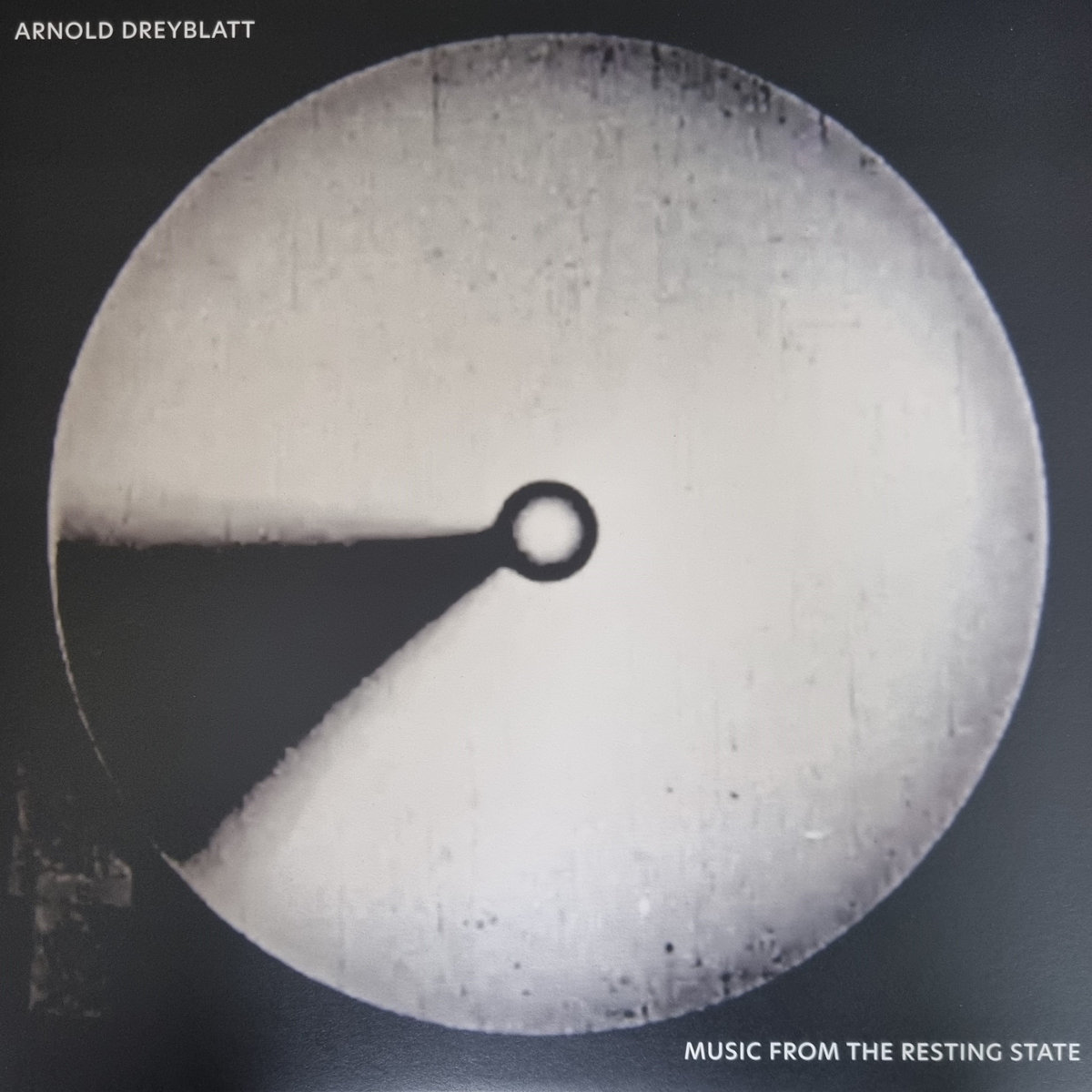
 |
|
 |
Format: LP Label & Cat.Number: Some Fine Legacy SFL 009 Release Year: 2024 Note: this release is based on an installation from 2019 at "Neuer Berliner Kunstverein" about the neuro-psychological research of the "Resting State" - when the brain turns into the DMN (=Default Mode Network) => *composed of carefully tuned sine tones, gently overlapping in momentary harmonic interactions. Alongside these long tones are heard slowly pulsing bass frequencies and an occasional woosh of tuned resonance... * - 300 copies + insert
Price (incl. 19% VAT): €24.00 More InfoSome Fine Legacy is pleased to announce Arnold Dreyblatts Music from the Resting State. Though widely celebrated for the pioneering high-energy exploration of alternate tunings in his Orchestra of Excited Strings, Dreyblatts parallel work as an artist over the last forty years has received less attention in experimental music circles. This LP is drawn from a major installation work, The Resting State, exhibited at the Neuer Berliner Kunstverein in 2019, in which Dreyblatt brought together sound, video, lighting and text to investigate the titular resting state and the history of neuro-psychological research on it. This concept is used in neurological research to name a state in which the brains default mode network is particularly active, occurring primarily when not engaged in specific tasks and studied by placing participants in low-stimulus environments and questioning them on their mental activity (or using other gauges of this, such as free association with word prompts).Cognitive scientists have determined two alternating moments within this resting state: one in which memory and future ideation are dominant and one in which we are aware of the environment (and sometimes bored or restless). The states are thought to alternate roughly every 60 seconds. This pattern provided the temporal framework for Dreyblatts exhibition, which borrowed from scientific studies of the resting state an 800hz beep used to jolt participants awake for questioning. Heard at random intervals between 57 and 63 seconds, the beep cued an alternation between light and darkness in the exhibition space. Accompanying a script read by a female voice derived from scientific studies, the audio component of the installation was a delicate composition for electronics, heard here without text. Produced at the renowned experimental music studio of the Akademie der Künste in Berlin and with the assistance of his long-term collaborator Konrad Sprenger, Music from the Resting State is chiefly composed of carefully tuned sine tones, gently overlapping in momentary harmonic interactions. Alongside these long tones are heard slowly pulsing bass frequencies and an occasional woosh of tuned resonance derived from Dreyblatts first purpose-built instrument, the miniature princess pianoforte. While consistent in its harmonic rhythm, density, and overall effect, the music is without exact repetition, seemingly static yet always in flux. At its irregular intervals, the 800hz beep intervenes to wake us from our contemplative immersion in the drifting tones. The resulting listening experience is a fascinating one: at each beep, we are momentarily jolted into close listening before the drifting formlessness of the music allows us to surrender again to a kind of daydream. As the piece elegantly unfolds across its forty minutes, it manages both to enchant immediately and to occasion an uncomfortable, radically self-reflective listening. Composed by Arnold Dreyblatt. Post Production by Gregorio Garcia Karman, Studio für Elektroakustische Musik, Akademie der Künste, Berlin. Audio Processing by Konrad Sprenger, Choose. Mastereing by Joe Talia, Good Mixture, Melbourne. Layout by Dirk Lebahn, Berlin. Photo by Jens Ziehe. Quote by Felicity Caillard, Daniel S. Margulies, 2011. Text by Francis Plagne, Melbourne. Music originally produced for the exhibition: "The Resting State", n.b.k. Neue Berliner Kunstverein, 2019. https://somefinelegacy.bandcamp.com/album/music-from-the-resting-state "Drawn from a major installation work exhibited at the Neuer Berliner Kunstverein in 2019, Arnold Dreyblatt's Music from the Resting State, as per its title, investigates the 'resting state' and the history of neuro-psychological research on it. Composed of carefully tuned sine tones, gently overlapping in momentary harmonic interactions, the album is an enchanting example of post-minimalism and radically self-reflective listening. First emerging in downtown New York City during the 1970s alongside friends and peers like Arthur Russell, Ellen Fullman, Julius Eastman, Peter Zummo, Elodie Lauten, Maggi Payne, Rhys Chatham, Glenn Branca, and numerous others, Arnold Dreyblatt is one of the central architects of the second wave of Minimalism, helping to radically rethink the idiom in unexpected and challenging ways. A student of Pauline Oliveros, La Monte Young, and Alvin Lucier, and a close friend and collaborator of Ellen Fullman, the bassist and composer would go on to become a definitive voice among the early 1980s New York avant-garde, releasing two seminal albums - 1982s Nodal Excitation, reissued in 2015 by Drag City, and 1986s Propellers in Love, reissued in 2017 by Superior Viaduct - that rest at the axis of important change within the canon of American post-minimal music. After remaining quiet for the better part of the decade following his relocation to Berlin, Dreyblatt came back with a force in the mid '90s, first with Animal Magnetism, issued by Tzadik in 1995, and then with the incredible The Sound of One String, via Table of the Elements, bringing his work to an entirely new generation, and leading to numerous, new phases in his career over the decades since, including numerous iterations of his Orchestra of Excited Strings." [Soundohm] |
| © 2007 Drone Records | | Celler Strasse 33, 28205 Bremen, Germany | Privacy and cookies policy | Impressum / Allgemeine Geschaftsbedingungen / Haftungsausschluss | Links to the scene |